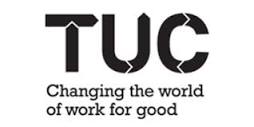Trades Union Congress – 2022 Comments on the Australia Trade Bill
The comments made by the Trades Union Congress on 10 March 2022.
Written evidence from Trades Union Congress (TUC)
Introduction
The TUC exists to make the working world a better place for everyone. We bring together more than 5.5 million working people who make up our 48 member unions.
- The TUC welcomed the opportunity to provide oral evidence to the International Trade Committee’s enquiry into the UK-Australia Free Trade Agreement (FTA) on 2 March 2022.
- This submission supplements the oral evidence the TUC provided to the Committee, providing more detail on issues that were highlighted in the session.
Involvement of trade unions
- When negotiations started between Australia and the UK, the TUC released a joint position with our Australian counterpart the Australian Council of Trade Unions (ACTU). [1] This statement called for UK and Australian governments to involve trade unions in negotiations to ensure that the agreement contained the key protections working people needed, including:
- enforceable commitments to ratify and respect International Labour Organisation core conventions on labour rights, including for migrant workers
- protections for all public services through a complete exclusion of all public services including such as health, education and transport; opening public services – using the ‘positive list’ approach
- protections for personal data
- exclusion of all kinds of special courts for foreign investors such as Investor-State Dispute Settlement (ISDS) or the Investment Court System (ICS), which allow foreign investors to sue governments for actions that are perceived to threaten their profits
- In June 2021, the TUC and ACTU released a follow up statement expressing concern that trade unions had been excluded from negotiations and the Agreement in Principle between the UK and Australia did not suggest the final agreement would have the protections unions were calling for. [2] These fears were confirmed when the final agreement was published.
- The TUC issued a statement on the publication of the final agreement in December 2021. [3] This stated that the deal posed a threat to workers, due to the fact it:
- contained no effective mechanism to enforce respect for fundamental International Labour Organisation (ILO) conventions – the agreement follows a similar approach to the Comprehensive and Progressive Transpacific Partnership (CPTPP) which has been condemned by trade union internationally for being ineffective to use in practice [4]
- contained no protections for migrant workers’ rights in the mobility provisions
- contained commitments to liberalise cross-border flows of data which could mean regulations to protect personal data from abuse and being used in a discriminatory way would have to be removed
- contained inadequate exemptions for public services – using the ‘negative list’ approach – which could lock part-privatised services into privatisation
- The TUC calls on the government to meaningfully consult trade unions on all its ongoing trade negotiations to ensure that they contain the protections working people need.
Gender
- The TUC believes it is crucial for trade agreements to prevent gender discrimination, promote decent jobs for women and protect quality public services. It is crucial for trade unions to be involved in negotiations to ensure these outcomes.
- The TUC is concerned that the commitments to gender equality in the UK-Australia trade deal will not be effective in promoting gender equality as they are not accompanied by effective enforcement mechanisms. Furthermore, the fact the Labour chapter of the agreement does not require Parties to ratify and respect all the fundamental ILO conventions means that Parties are not required to ratify and uphold convention 111 on non-discrimination which is central to addressing gender inequalities. As noted above, the TUC is also concerned the UK-Australia FTA does not contain adequate exemptions for public services as it takes a negative list approach. This means part-privatised services could be locked into privatisation. This will particularly negatively impact on women as they are disproportionately likely to be caregivers relying on public services.
- The failure to involve trade unions in UK-Australia negotiations meant that trade unions were not able to advise the government on how the tariff offers and other provisions in the agreement would affect women workers.
- The TUC is concerned that a number of trade agreements and trade arrangements negotiated without trade union involvement have increased gender inequalities. For example, the North America Free Trade Agreement signed in 1993 displaced women from stable jobs with good conditions in the manufacturing sector in the US. The agreement also displaced women from stable jobs in agriculture in Mexico. The European Parliament reports that poverty increased in female headed households by 50 per cent between 1992 – 2000. [5]
- Furthermore, it is well documented that tariff-free areas that have been established in a number of countries to process exports (Export Processing Zones) are sites where mostly women are employed on exploitative terms. [6] Workers have less protections in these zones with trade unions are frequently banned, as in Export Processing Zones in Bangladesh. [7]
ISDS
- While the UK-Australia agreement does not contain an Investor-State Dispute Settlement (ISDS) mechanism, the TUC is concerned that the UK government intends to join CPTPP which contains ISDS. Unless the UK government asks for an opt-out from the ISDS provisions with all CPTPP members, the UK would be subject to this ISDS system. The TUC is concerned the government has not indicated to date that it will ask for such an opt-out.
- If the UK is bound by ISDS provisions in CPTPP, it would mean investors based in all CPTPP countries, including Australia, would be able to sue the government for actions that they perceive threaten their profits. In the past, ISDS cases have been brought against governments that attempted to increase the national minimum wage or renationalise water supplies. [8]
March 2022
[1] https://www.tuc.org.uk/sites/default/files/2020-09/ACTU_NZCTU_TUC_Statement_UK_Trade_Talks_p3.pdf
[2] https://www.tuc.org.uk/australian-and-uk-unions-statement-uk-australia-trade-deal
[4] https://www.ituc-csi.org/IMG/pdf/trans_pacific.pdf
[5] https://www.europarl.europa.eu/RegData/etudes/STUD/2016/571388/IPOL_STU(2016)571388_EN.pdf


